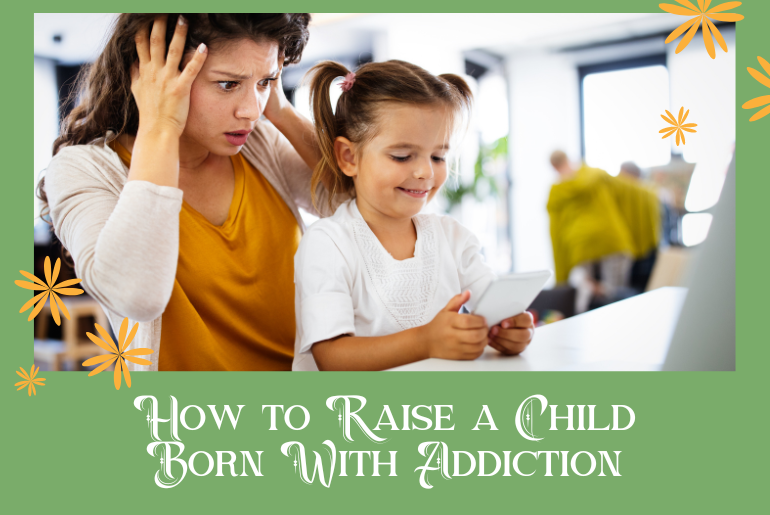In recent years, we’ve seen a fascinating shift in parenting styles for some couples as they embrace Republicanism. This transformation has led to a unique blend of conservative values and modern parenting techniques, empowering parents to foster resilient, self-reliant children. Yes, Republicanism has indeed transformed parenting for some couples. It has introduced a paradigm shift where traditional values meet modern parenting techniques, fostering an environment of self-reliance and resilience. How has this happened? We all explore its nitty-gritty in this post.
Historical Perspective of Republicanism on Parenting
 Delving into the historical perspective, it’s crucial to understand that Republicanism, as a political ideology, has its roots deeply entrenched in the principles of individual freedom, limited government intervention, and personal responsibility. These principles have not only shaped the political landscape but have also influenced personal domains like parenting.
Delving into the historical perspective, it’s crucial to understand that Republicanism, as a political ideology, has its roots deeply entrenched in the principles of individual freedom, limited government intervention, and personal responsibility. These principles have not only shaped the political landscape but have also influenced personal domains like parenting.
Historically, families with a strong Republican-leaning often emphasized these values in their parenting style. Traditional, firm, and highly structured parenting was the norm. The goal was to nurture future citizens who were independent, responsible and held a strong sense of duty towards their community and nation. However, as we moved into the 21st century, a significant transformation has occurred, with a more nuanced and balanced approach to Republican parenting emerging.
The Core Principles of Republicanism
Let’s dive into the core principles of Republicanism and understand how each of them influences parenting styles.
1. Limited Government Intervention
A central tenet of Republicanism is the principle of limited government intervention. Republicans strongly believe in the concept of limited government; the idea that the government should play a minimal role in individuals’ personal lives. This belief extends to parenting, where they advocate for parents to have the freedom to raise their children in line with their personal values and beliefs, without undue interference from state institutions.
2. Individual Freedom
Another pillar of Republicanism is individual freedom. This principle emphasizes personal liberty and self-determination. In the context of parenting, it means allowing children the freedom to express themselves, make their own decisions, and learn from their experiences. It encourages parents to act as guides rather than authoritarian figures, fostering an environment of understanding and mutual respect.
3. Personal Responsibility
The third core principle of Republicanism is personal responsibility. It’s the belief that individuals should take responsibility for their actions and their consequences. When applied to parenting, this principle encourages teaching children about accountability from an early age. It’s about instilling the idea that every action has consequences, and it’s essential to own up to and learn from one’s mistakes.
4. Free Market Capitalism
Free-market capitalism is another principle central to Republicanism. It promotes competition, innovation, and personal initiative. When this principle is integrated into parenting, it encourages parents to instill in their children the values of hard work, enterprise, and fair competition. It’s about teaching children to value their work and strive for success in their endeavors.
Traditional Parenting Values in Republicanism
Republican parenting is often rooted in traditional values, emphasizing structure, discipline, and responsibility. Parents are often seen as role models who demonstrate these values in their actions and behaviors, rather than merely dictating them. This approach places a significant emphasis on teaching respect for authority and the importance of hard work. In essence, traditional parenting values in Republicanism aim to instill a sense of responsibility, self-discipline, and respect for societal norms in children, preparing them to become self-reliant and productive citizens.
Changes in Republican Parenting Over Time
As society evolves, so too do the principles of parenting. This evolution is clearly visible in Republican parenting. The rigid, traditional style has gradually become more flexible, adapting to societal changes and embracing more progressive values.

A. Shift towards more progressive values
Republican parenting has seen a distinct shift in recent years, moving towards a more inclusive and balanced perspective.
1. Acceptance of diverse family structures
Today, the Republican lens is slowly opening to the diversity of family structures, including single parents, co-parenting setups, and blended families. The focus is less on the structure and more on the values that are being instilled in children – responsibility, respect, and independence.
2. Embracing gender equality and LGBTQ+ rights
There’s also been a perceptible shift in attitudes towards gender roles and LGBTQ+ rights. More and more Republican parents are breaking away from traditional gender expectations, encouraging their children to pursue their interests and ambitions regardless of their gender. Similarly, there’s growing acceptance of LGBTQ+ individuals within the community, reflected in the way parents teach their children about respect and equality for all.
B. Adaptation to societal changes
Alongside these shifts in values, Republican parenting has also adapted to significant societal changes.
1. Balancing work and family life
In today’s fast-paced world, balancing work and family life has become a critical issue. Republican parents are increasingly recognizing the importance of this balance. They are setting examples for their children by sharing household responsibilities, promoting quality family time, and demonstrating that hard work doesn’t mean sacrificing family commitments.
2. Navigating the digital age and social media
Lastly, as we’ve entered the digital age, Republican parents have found themselves navigating the complex world of social media and online safety. They are focusing on educating their children about the responsible use of technology, the importance of privacy, and the potential pitfalls of social media. This focus on digital literacy is now an integral part of their parenting approach, emphasizing not just the risks, but also the opportunities that the digital world offers.
The Role of Education in Republican Parenting
Education plays a pivotal role in the Republican parenting model. It’s not just about academics; it’s about instilling values, teaching responsibility, and preparing children for their roles as citizens.
A. Advocacy for School Choice
In line with their belief in limited government intervention and individual freedom, Republicans are strong advocates for school choice.
1. Support for charter schools and vouchers
Republican parents tend to support policies that allow parents to choose the best educational path for their children, including charter schools and voucher programs. They believe these options promote competition, improve education quality, and empower parents to make decisions based on their children’s unique needs and potential.
2. Homeschooling as an option for some families
Homeschooling is another option that resonates with many Republican parents. It provides the freedom to tailor the educational experience to a child’s specific needs, interests, and pace, while also allowing parents to incorporate their values and beliefs into their child’s learning.
B. Emphasis on Patriotism and Civic Duty
Alongside academic education, Republican parents place a high emphasis on teaching patriotism and civic duty.
1. Teaching children about American history and values
Republican parents believe it’s important to teach children about American history and the values that the nation was built on. They often incorporate lessons about the Constitution, the founding fathers, and significant historical events into their children’s education to foster a sense of pride and respect for their country.
2. Encouraging community involvement and volunteering
Community involvement is another aspect of Republican parenting. Parents encourage their children to participate in community service and volunteering activities. The goal is to instill a sense of responsibility and commitment to their community, teaching children that they can make a difference in the world around them.
Criticisms and Challenges of Republican Parenting
While the Republican parenting style offers many benefits, it’s not without its criticisms and challenges. Some critics argue that it can be too strict, while others point out the difficulties in balancing tradition with modern values.

A. Accusations of Being Too Strict or Controlling
One common criticism of Republican parenting is that it can sometimes lean towards being overly strict or controlling.
1. Potential negative effects on children’s mental health
Critics suggest that a highly structured and disciplined environment can potentially put undue pressure on children, leading to stress and negatively impacting their mental health. The emphasis on individual responsibility can sometimes be interpreted as a lack of emotional support during difficult times.
2. Struggles with parent-child communication
Another concern revolves around parent-child communication. Critics argue that an authoritative style may lead to a communication gap where children may feel hesitant to express their feelings or discuss their problems openly with their parents.
B. Balancing Tradition with Modern Values
Another challenge that Republican parents often face is reconciling traditional values with evolving societal norms.
1. Navigating evolving gender roles and expectations
As society moves towards more equality in gender roles, Republican parents may struggle to balance traditional family roles with these changing norms. It can be a challenge to teach children about equality and empowerment while maintaining certain traditional family structures and values.
2. Addressing concerns about diversity and inclusion
Another modern value that Republican parents may grapple with is diversity and inclusion. As society becomes increasingly diverse, there is a growing need to teach children about acceptance and respect for all, regardless of race, religion, or sexual orientation. Balancing this with conservative values can be a complex task for Republican parents.
Last Note
Republicanism has indeed transformed parenting for some couples, leading to a distinctive blend of traditional values and modern societal norms. While this parenting style, like any other, faces criticisms and challenges, it continues to adapt and evolve, striking a balance between preserving core principles and embracing societal changes. The result is a unique approach to parenting that fosters self-reliance, resilience, and a strong sense of responsibility in children.

Dedicated father, an accomplished psychologist, and an experienced educationist. With a passion for guiding parents on the rewarding journey of raising children, I am the perfect companion for all your parenting needs. My insightful and practical advice, coupled with my wealth of experience, makes me the go-to expert for all matters related to parenting. Follow this blog for a glimpse into the world of effective parenting and learn how to navigate the ups and downs of this beautiful journey with confidence and grace.




